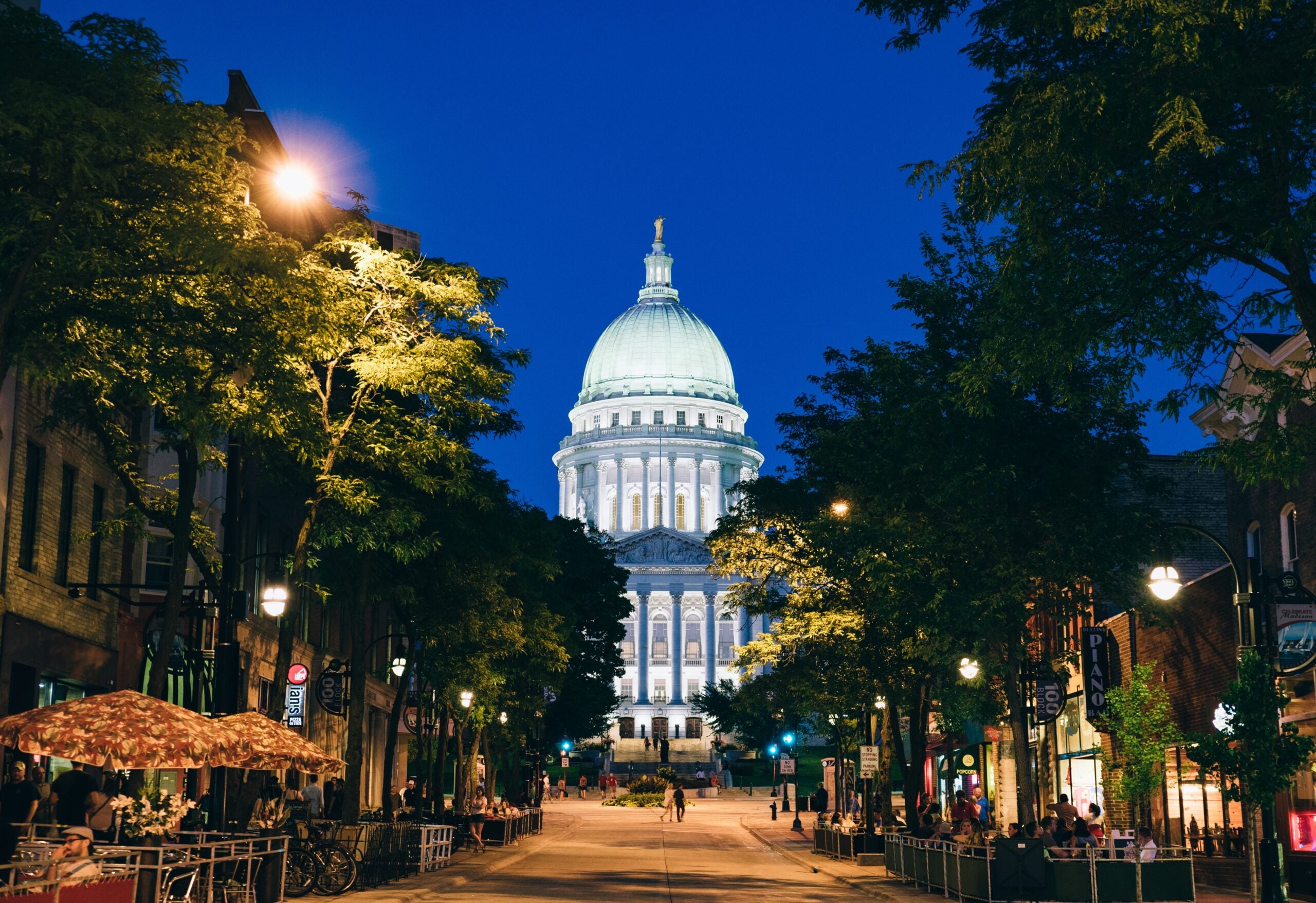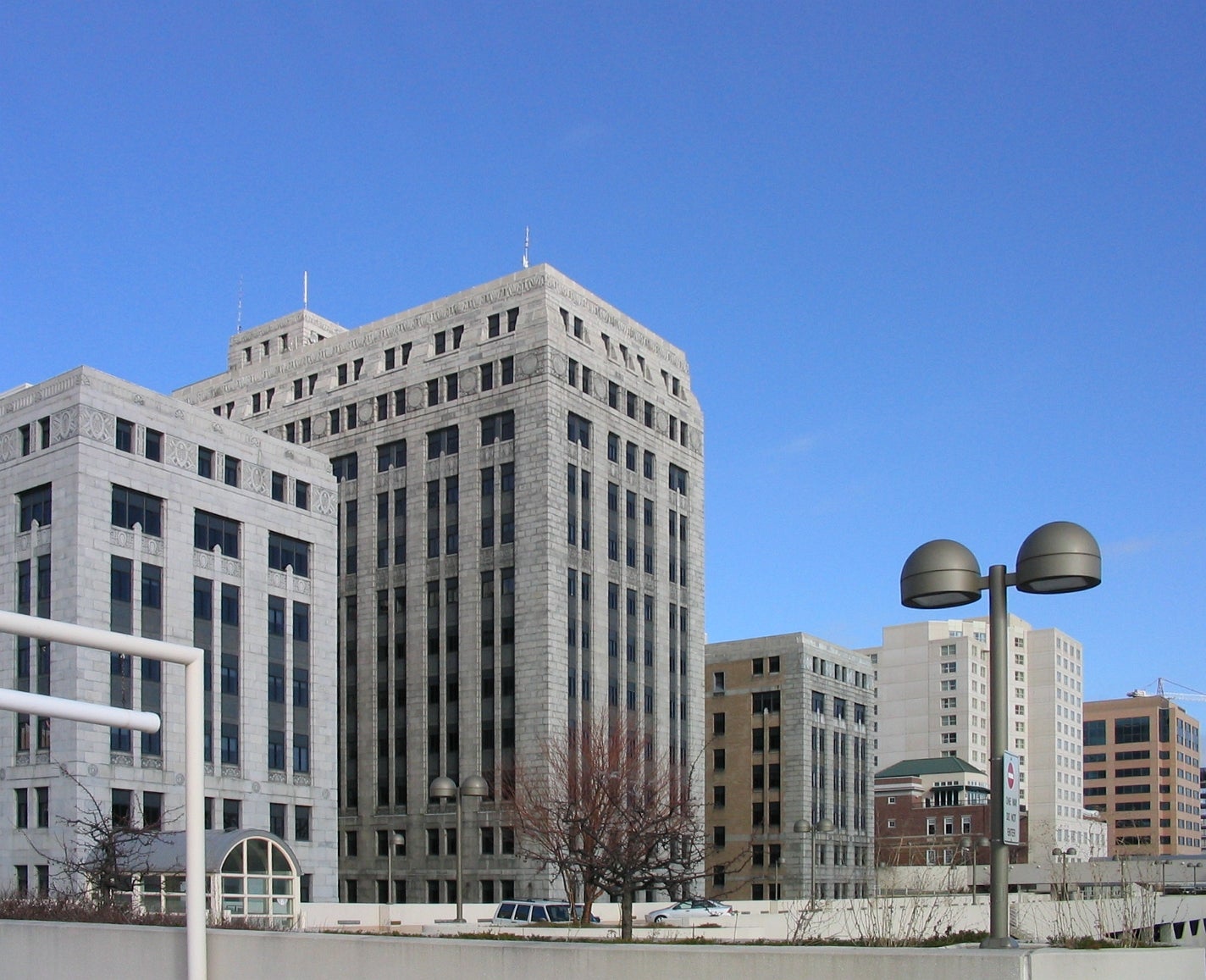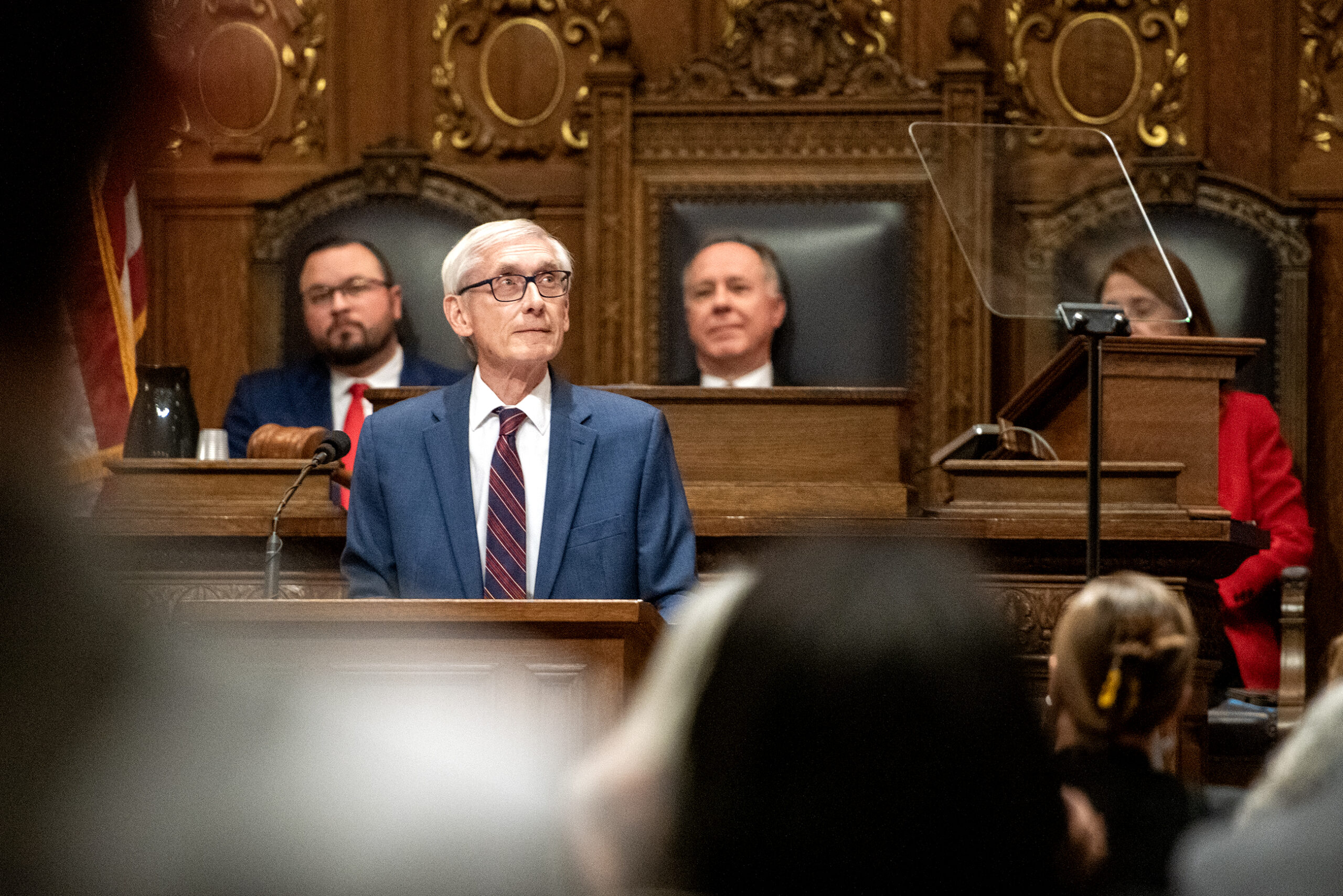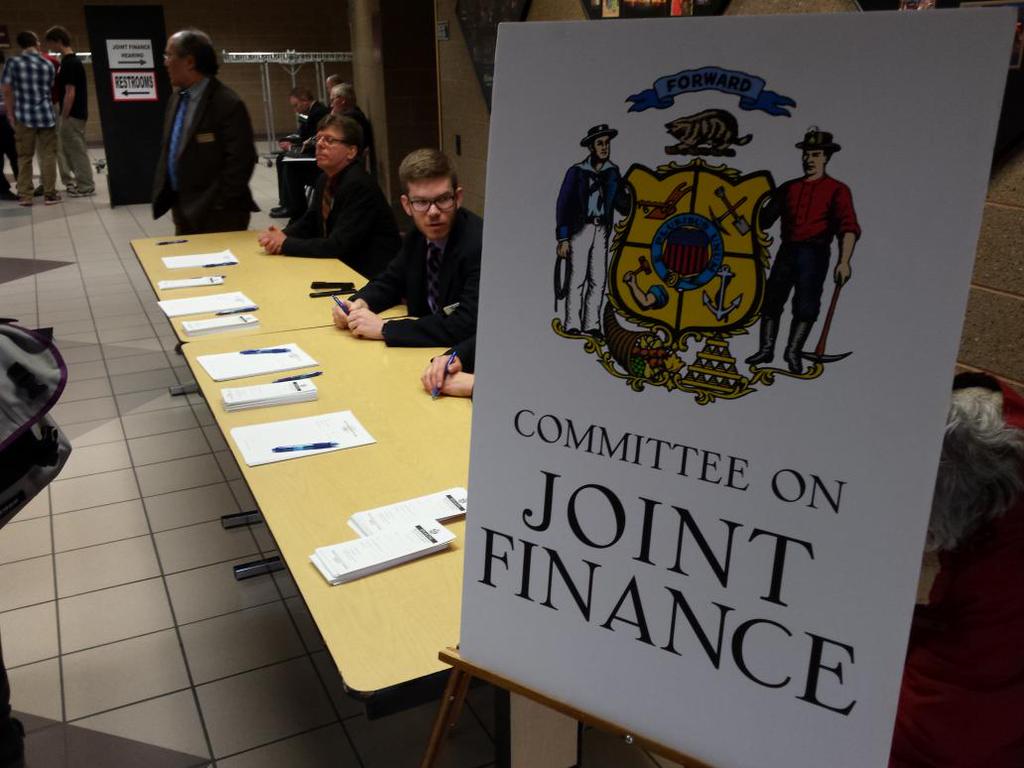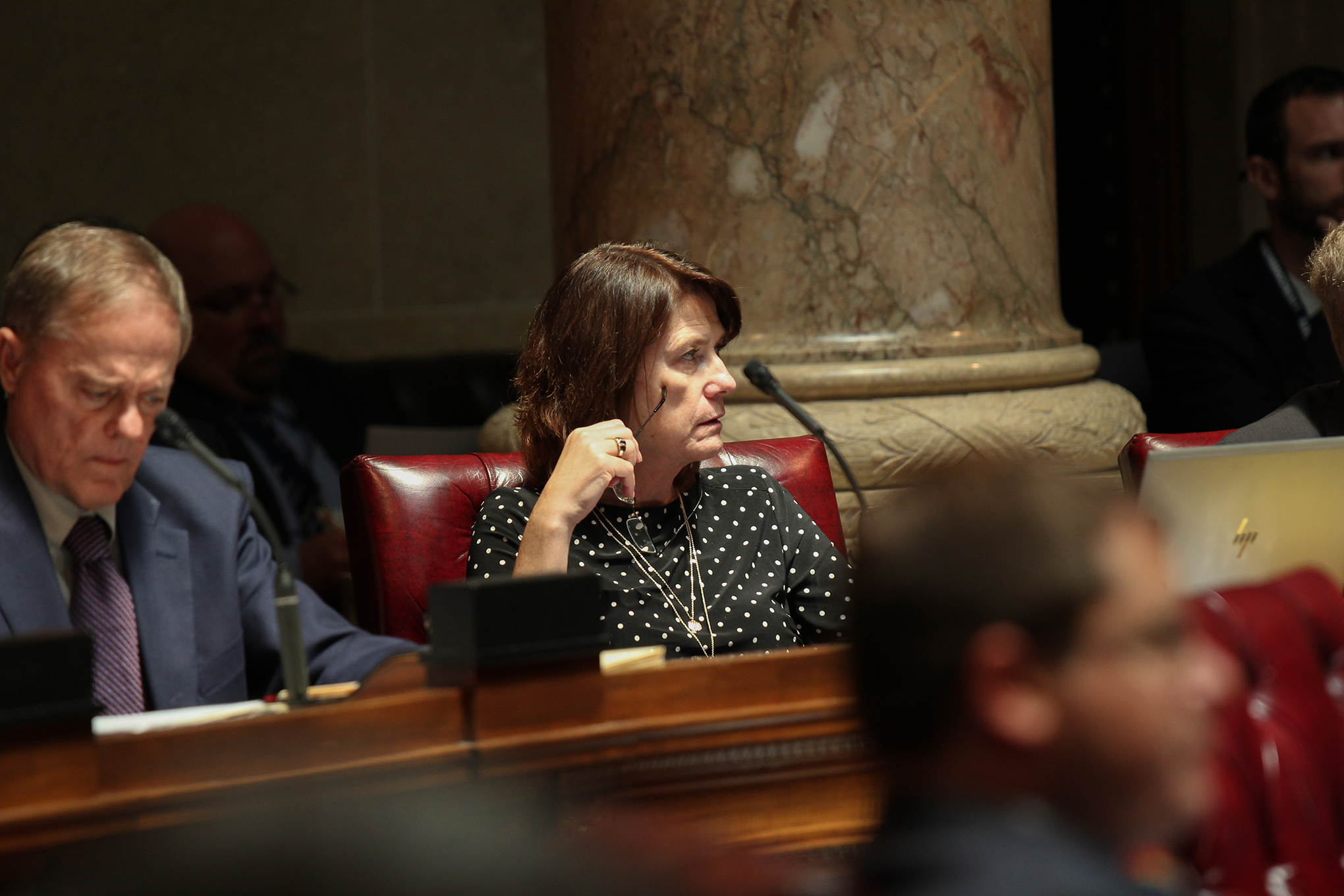The state budget is now back in the hands of Gov. Scott Walker.
The state Senate passed the $76 billion spending plan on a vote of 19-14 on Friday night.
During final negotiations on the deal with three Republican state senators, Walker agreed to make specific vetoes to the budget. Those include an immediate repeal of the state’s prevailing wage law, which sets minimum salaries on state-funded construction projects. Wisconsin already bars prevailing wage on local construction projects.
Stay informed on the latest news
Sign up for WPR’s email newsletter.
Another veto would cut a $2.5 million study on the possibility of interstate tolling in Wisconsin from the budget. The study could’ve moved the state closer to a long-term source of revenue for Wisconsin roads.
Despite the veto deal, one of the three GOP senators behind it said he’s still not thrilled with the spending plan.
“I don’t think anybody is extremely happy,” said Sen. Chris Kapenga, R-Delafield, before the final vote. “Nobody loves this budget from the three (senators) who are going to vote ‘yes,’ but it got us close enough to where we want to get this done.”
Sen. Duey Stroebel, R-Saukville, and Sen. Steve Nass, R-Whitewater, also worked with Kapenga and the governor to secure the vetoes.
Stroebel, Nass, and Kapenga also negotiated for a veto that would limit school district referendums. Under the agreement, districts could only have referendums on the ballot during regularly scheduled primary and general election days.
Walker said Friday he will include additional vetoes to the budget, including measures regarding local regulation of quarries and funding for state Capitol building renovations.
The governor is expected to sign the budget by the end of the month.
Sen. David Craig, R-Town of Vernon, was the lone GOP “no” vote on the budget in the senate.
“While this budget contains positive provisions like finally repealing the rest of our prevailing wage law, a reform I have long supported, it fails in its primary function — to appropriately limit the size, and thus the role, of government in our lives,” Craig said in a statement.
During Friday’s debate on the budget, Sen. Alberta Darling, R-River Hills, who co-chairs the budget committee, lauded the spending plan for its University of Wisconsin System tuition freeze, K-12 education funding increase, and tax cuts.
“A ‘no’ vote on this budget tells me you don’t care about reducing the burden on hardworking Wisconsin citizens,” Darling said.
The budget freezes tuition at UW System schools for two more years, raises K-12 education funding by $639 million, and eliminates the state’s portion of property tax bills.
Democrats argued against the budget, pushing for more school funding and additional money for local governments to spend on road projects.
“You can’t be open for business when all you do is drive over potholes in this state,” said Sen. Jon Erpenbach, D-Middleton.
The budget includes $402 million in borrowing for transportation, which would be the lowest amount in more than a decade. That includes $252 million for expanding Interstate 94 south of Milwaukee, which was part of the Foxconn incentive package approved by the Legislature earlier this week. That would leave just $150 million for other transportation projects, including the widening of Interstate 39/90 south of Madison.
The budget does not include funding for Interstate 94 west of Milwaukee between the Marquette and Zoo interchanges or the north leg of the Zoo Interchange.
The state budget was due on July 1, but was delayed by clashes over transportation spending and taxes.
Editor’s Note: This story was updated with additional reporting at 10:27 p.m. on Sept. 15, 2017.
Wisconsin Public Radio, © Copyright 2025, Board of Regents of the University of Wisconsin System and Wisconsin Educational Communications Board.
